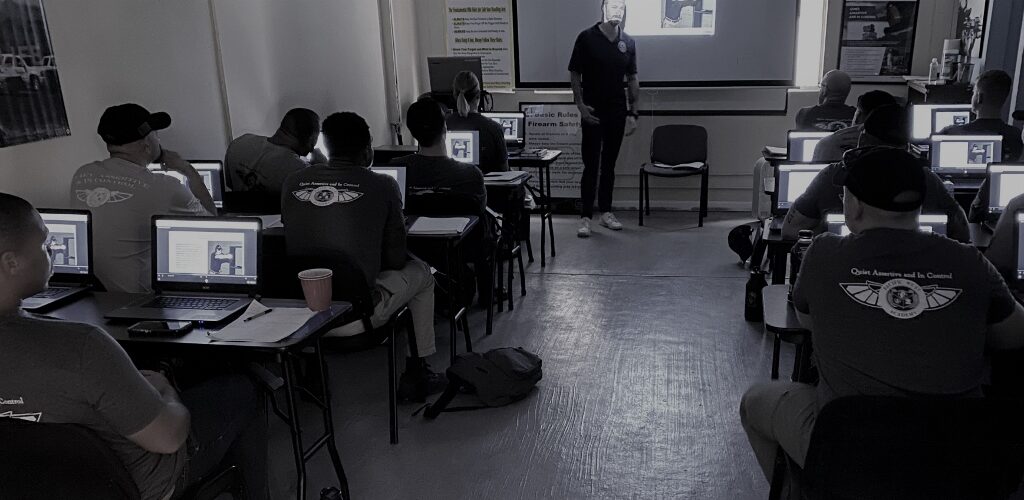

Post 911 GI Bill®
How the Post 9/11 GI Bill® Helps Military Veterans Transition into Civilian Employment
Serving the country to maintain America’s status as the Land of the Free is a truly remarkable feat. While everyone appreciates the work that those military professionals do on a daily basis, returning from duty without major physical or mental scars is only half of the battle. For thousands of returning veterans, the real challenge is finding a way back into normal society. In most cases, launching a new career through traditional employment is the hardest step of all.
While a military career is sure to teach a host of transferable skills, not least with regards to leadership and problem solving. Unfortunately, that experience is only one key ingredient en route to landing a new career. Qualifications and education are equally pivotal, but continuing academic development isn’t always easy. The Post 9/11 GI Bill® is aimed to help.
The Post 9/11 GI Bill® At A Glance
Support for military veterans started with the Servicemen’s Readjustment Act of 1944, otherwise known as the G.I Bill, as a scheme aimed at aiding WWII veterans. The Bill has evolved over the decades, however, with several amendments being made. The Post 9/11 expansion came into play with the Veterans Educational Assistance Act of 2008, which is also known as the Post 9/11 GI Bill®.
The Post 9/11 GI Bill® is designed to provide financial support for military veterans as they make the transition into civilian employment. This is achieved by offering financial support for those veterans wishing to study and develop the skills needed for their new careers in nonmilitary positions.
How Does The Post 9/11 Bill Help?
Ultimately, the grant is designed to give financial aid to veterans. However, the Post 9/11 amendment has seen the level of support increase dramatically. Covering the cost of tuition fees remains the focal point, as has been the case for over 70 years, but military veterans can now enjoy additional support ranging from a monthly housing allowance to a $1,000 grant for books and other educational supplies.
Essentially, this allows veterans to start their second careers without the financial burden. Given the different academic trajectory compared to nonmilitary people, this can make a huge difference for individuals with families and other commitments. It’s all about removing the hurdle, allowing veterans to transition back into society and lead the best lives they can lead.
Is It Working?
Studies have shown that college enrollment among military veterans has increased by three percentage points since the new Act was officially rolled out in 2009. While this is slightly influenced by the initial boom, there’s no question that more veterans are in a position to resume their nonmilitary education and development.
Perhaps more tellingly, the figures are fairly consistent across all age groups. Whether a former serviceman or servicewoman is in their 20s or 50s, the opportunity to build for a brighter future and smoother transition into civilian life carries a huge appeal. Moreover, the fact that the support extends to students of all educational backgrounds enables those that already hold degrees to continue their academic journeys without the burden – this demographic is shown to be one of the greatest beneficiaries.
How Much Tuition Can Be Covered?
The exact amount of financial relief provided by the scheme can vary from person to person due to a whole host of reasons. This can include time of service and the number of credits you have available. Generally speaking, though, 36 months worth of tuition will be covered. Again, though, individual elements may influence the housing and equipment allowances.
Credits can be used for traditional tuition, online learning, and various other forms of education. Meanwhile, those seeking private education rather than state education will receive a percentage of the fee rather than the full amount. So, there are plenty of options out there.
Why Aren’t More People Using It?
While the 9/11 GI Bill® has had a positive impact, there’s no doubt that some veterans are missing out. In many cases, misinformation is at the heart of those problems. Veterans have a 10-15 year period to use their credits while individuals can also stop and start as their life dictates. This means it is possible to complete some studies before taking a break and then picking it up again later down the line.
Wrongly assuming that the process needs to be completed in one block provides a needless obstacle for thousands. Likewise, not fully understanding the way that the credits are used or the differences between this payment and traditional Federal Financial Aid can play a factor. Visiting the vets.gov website is the best way for veterans to learn more and file their online applications.
Which Careers Suit Military Veterans?
For many military veterans, simply finding a suitable job is arguably the hardest step of the entire process. Credits can be used in a whole host of areas, though, so college opens up many doors and fresh opportunities. Even after a career in the military, there’s no limit on what can be achieved. From accountants to zoologists, veterans can follow virtually any pathway imaginable.
A lot of military types find that it’s easier to move into a job that shares several attributes and qualities, with security standing out as a great option. Pacific West Academy provides the training needed to be effective in any position in the security and executive protection fields. The ability to get back into the working arena far sooner is something that certainly appeals to many too.
The Final Word
The Post 9/11 GI Bill® is one that aims to take the support of servicemen and women to the next level. After nearly a decade, it’s safe to say that the results have been positive in helping those people find a way back into civilian life with a rewarding career that fills them with pride and a good wage. While it may never replace the feelings of serving the country, it’s certainly the key to a happy post military lifestyle.
